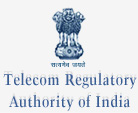
The Telecom Regulatory Authority of India (TRAI) on Friday has decided to approve the proposals of Department of Telecommunications (DoT) for hiking PAN-India licence fee for third generation (3G) mobile services at Rs 2,200 crore and PAN-India broadband wireless access (BWA) spectrum, which is popularly known as WiMAX at about 840-crore, as per official sources informed.
TRAI is likely to inform DoT in this regard today. Earlier, TRAI was not agreed with DoT’s proposal to hike the base prices of PAN-India licence fee.
“We have agreed to the DoT’s recommendations that the reserve price should be raised,” said Nripendra Misra, Chairman of TRAI. Speaking over WiMAX, he added, “We have recommended separate price structures for different circles.”
‘For metros category and category A-circle, the base price is recommended Rs.60-crore, for category B-circle, Rs.30-crore, for category C-circle, it would be Rs.10-crore,” official sources said.
Earlier, TRAI had opposed the DoT’s recommendation to hike the reserve prices for Pan India licence to Rs.2,200-crore, while it had proposed the licence fee of Rs.1,400-crore. TRAI is still opposing DoT’s plan to allow the new players including global players for bidding in the 3G mobile service auction.
“I strongly believe that only the existing licensees be permitted to participate in the auction, but DoT is competent enough to take a final call,” TRAI chief Misra said. Some foreign mobile players are interest to participate in the auction.
TRAI has also become ready to accept the DoT’s proposal that says successful bidders will have to match the highest bid, while TRAI was in the favour of matching second highest bid. TRAI is also in the favour of e-auction for bidding as it argues, “It will be more convenient for all the participants.”
DoT has also recommended increasing the spectrum from 5 Mega Hertz (MHz) to 15 MHz in the pack of 5 MHz, which has now been accepted by telephone regulator.
In the new spectrum allocation, the bandwidth of new spectrum would be 2.3-2.4 GHz, 2.5-2.69 GHz bands, and 3.3-3.6 GHz bands, while 2.3-2.4 GHz and 2.5-2.69 GHz bands were not available earlier. DoT has asked the Department of Space to allocate the additional allocation for DoT, which can be used in telecommunication and Internet broadband.
For bidding into new auction process for getting spectrum, TRAI has suggested that the auction should be done in blocks of 5 MHz each and any bidder can bid up to three blocks translating 15 MHz maximum. Besides these, TRAI has also asked to add additional charges in the form of annual spectrum fee that would be 1% of total adjusted gross revenues (AGR) for BWA services.
The existing market players Bharti, Vodafone, Reliance, Idea and Tatas are not happy with this new recommendation of TRAI.
TRAI has also add a condition that the existing service providers in the band 3.3-3.4 GHz shall have to pay the equal amount as it will be charged from the new entrants
Where there is no spectrum available for new allocation as it had already been allotted, and for getting new allocation, the service providers of that service area shall have to pay the highest bid price obtained in the other service areas of that category, as per TRAI suggested.
Due to the differences between DoT and TRAI, the 3G policy announcement was delayed since more than three months. Now, it looks that this move of TRAI has paved the way of finalising the 3G policy.
|
|


Comments:
raj sharma
August 2, 2008 at 12:00 AM
TRAI's this decision is very good.it will be benifecial to customer he can choose cheap and best servise provider without any change of his nmber.
in public relation i have seen many people are not satisfied with thier present servise provider.they bearing useless thing only to maintain thier favorite number or for older no.
3g will be very benificial for BSNL because it is proovinding cheap and best network while other are charging many types of hidden charges.
if this desicion being apply as soon as i will change my service provider.